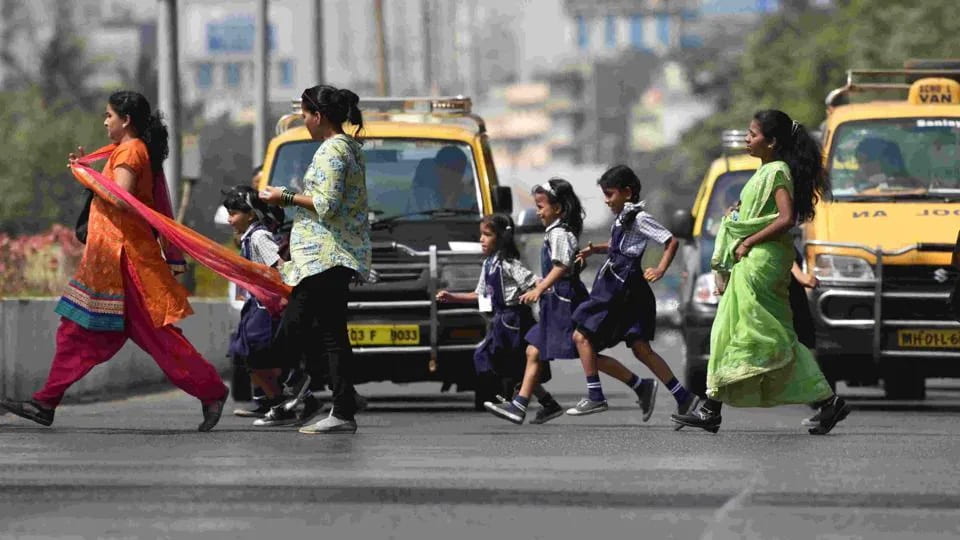Africa is a land of vibrant cultures, mesmerizing landscapes, and remarkable wildlife. A land with endless variety that also faces countless difficulties.
If I were to inquire about the primary cause of mortality among young people in Africa, one might naturally assume it to be linked to issues such as armed conflicts or prevalent diseases. However, surprisingly, the statistics present a different reality that demands immediate attention. Contrary to assumptions, the urgent concern lies elsewhere: traffic-related incidents.
Given the perception that Africa has relatively lower traffic volume and fewer vehicles in comparison to other regions, it might be presumed that traffic accidents are not a significant cause for alarm.
However, According to the World Health Organization1, road accidents are the leading cause of death for people aged 5-29 worldwide. Low & middle-income countries, account for more than 90% of these deaths. Africa alone is accounting for a staggering 20% of the global total even though it has only 3% of the world’s vehicles 2.
>> The Looming Crisis
As we can see in the graph below based on the World Development Indicators 3, Africa has the highest mortality by traffic in the world, Especially SUB-Saharan Africa with around 27 deaths per 100,000 population, compared to the global average of 16.5 deaths per 100,000 population.
This is a serious problem that requires immediate attention. So, what is causing these alarming statistics, and how can we stop it?
Traffic fatalities have become a major public health crisis in Africa, affecting the entire continent. The loss of life is significant, and it has profound social and economic effects. Lives are lost, families are devastated, and communities lose valuable members. However, there are solutions to this crisis. We need to understand and address the root causes.
>> The Power of Education
One of the factors that may explain this problem is the low level of education in the region, which affects the skills and knowledge of drivers, pedestrians, and road users. Education is widely recognized as a key determinant of human development and well-being, as well as a driver of economic growth and social cohesion. However, many African countries still face significant challenges in providing quality and inclusive education for all their citizens.
Below graph shows the % of Population with Educational attainment, at least Bachelor’s degree for people aged +25 years old.
Of all regions, Africa has the highest rates of education exclusion with an average of 3% only. This issue affects drivers and pedestrians alike, shaping their behaviours and safety measures on the road.
Education, or lack thereof, directly influences an individual’s driving behaviour, risk perception, and compliance with traffic rules and regulations. A lack of education diminishes the cognitive skills necessary for safe driving – such as decision making, hazard perception, and situational awareness – and reduces the likelihood of adhering to traffic laws.
As a result, the region experiences a lower life expectancy compared to other parts of the world.
The below graph illustrates this result, where African life expectancy is only ~ 54 years .
>> A Source of Hope
Investing in education can be the remedy for Africa’s traffic fatality crisis. Education is a powerful tool for increasing awareness of road safety and developing human potential. It provides individuals with knowledge, improves cognitive skills, and promotes a culture of safety.
Education has the potential to bring about broader change. It can improve access to quality education for everyone, especially vulnerable groups like women and children.
African countries should increase public spending on education to improve the quality and access of education for all.
This must ensure as well that the resources are used efficiently and effectively to improve the quality and access of education for all.
We can see in the below chart about Government expenditure on education (% of Gov. exp.) that many African countries are increasing their spending on education recently, which will help reduce the mortality by traffic.
>> The Road Ahead
Through education, we can equip individuals with the necessary skills and awareness to navigate roads safely. Initiatives such as specialized safety classes, more driving schools, and regular car inspections can all contribute to this cause.
There is ample evidence supporting the effectiveness of this approach. The Middle East and North Africa (MENA) region, for example, has seen a consistent decrease in traffic fatalities due to higher levels of education and awareness.
Traffic Mortality decreased from a peak of 21.9 to 16.3 per 100,000 population and it is showing high Life Expectancy of 68.3 years on average which is close to Latin America and East Asia Pacific.
This can be considered as a great model for Sub-Saharan Africa to follow.
>> Taking Action
We conclude our journey by emphasizing the transformative power of education. It is evident that education plays a pivotal role in mitigating the alarming rates of traffic fatalities in Africa.
This is more than just a blog post; it is a strong call for change. Education saves lives, including on the roads of Africa.

Based on our research, we recommend several actionable measures to address this issue effectively. These include:
The establishment of specialized safety awareness classes
An increase in the number of driving schools
Spreading awareness for correct helmet use, seat-belts, and promoting child restraint measures.
implementing rigorous car check-ups and safety assessment programs.
implementation of reduced speed limits of 30 kilometers per hour for crowded areas.
By actively pursuing these recommendations and securing necessary funding, we can collectively address the traffic fatality crisis in Africa and demonstrate our commitment to preserving every life.
[1]: WHO – Road traffic injuries
[2]: WHO – Global status report on road safety 2018
[3]: Worldbank data
For Complete Tableau Story:
https://public.tableau.com/views/HowEducationCanSaveLivesontheRoad/Story?:language=en-US&publish=yes&:display_count=n&:origin=viz_share_link

0 Comments